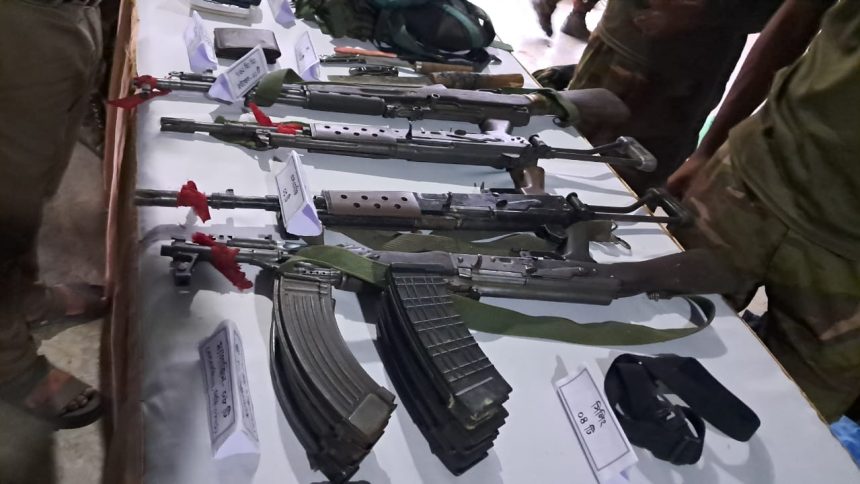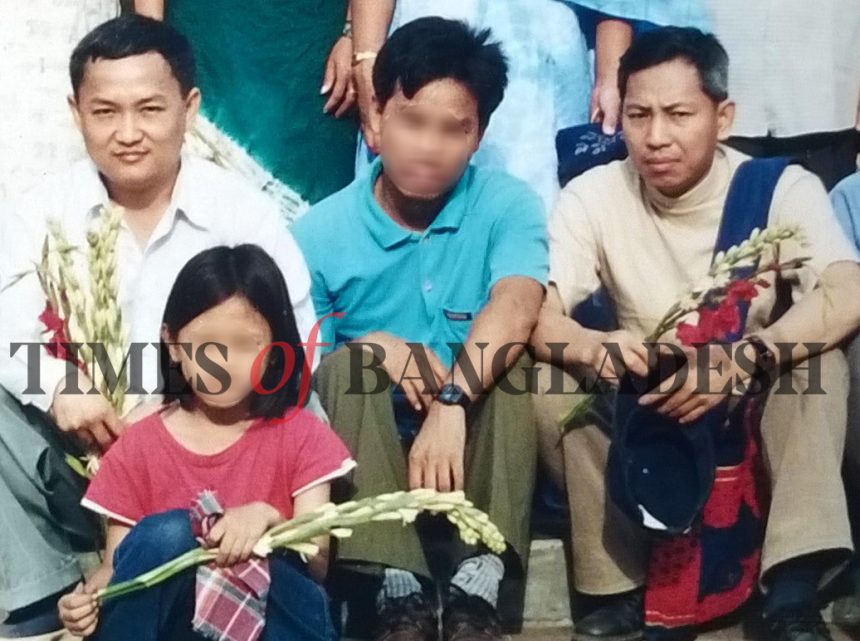Amid a large-scale security operation by the Bangladesh Army, senior leaders and activists of the United People’s Democratic Front (UPDF) have reportedly gone into hiding. Sources within the Hill Tracts say the party—long known for opposing the 1997 Peace Accord—has seen both its grassroots and central leadership vanish from public view, with several top figures fleeing the country.
UPDF sources and local reports confirm that central leaders, including longtime party figurehead Prasit Bikash Khisha and general secretary Rabi Shankar Chakma, have left the country, allegedly taking refuge in India’s Tripura state over a year ago. The party’s once-active social media platforms have also gone silent.
On July 5, the Inter-Services Public Relations Directorate (ISPR) announced that the Bangladesh Army had begun operations in “remote areas of Rangamati” targeting the UPDF. The scale and official acknowledgment of this operation mark the first of its kind in recent years.
In a statement to The Times of Bangladesh, UPDF’s central organizer Angya Marma accused both the previous and current governments of continuing “repression and de facto military rule” in the hills. “We expected democratic change after the July uprising, but this interim government is following the same path as the fascist Hasina regime,” he said.

Founded in 1998, UPDF has long positioned itself as a democratic regional party. It has contested national and local elections since 2001, yet now finds itself under intense state scrutiny. “Despite being a political party, we are not being treated as such,” Marma added.
The situation has intensified following recent clashes involving other armed groups. Just two days ago, army forces killed Kuki-Chin National Army (KNA) commander “Putin” in Bandarban during a raid, further heightening tensions.
In the absence of Prasit and Rabi, UPDF’s leadership had reportedly fallen to Michael Chakma, who was released in 2024 after five years in secret detention. But even he has gone underground since a public appearance in May.
The long-anticipated unity between UPDF and the pro-Accord Jana Samhati Samiti (JSS) appears unlikely. A proposal for unity extended by UPDF a year ago was rejected over ideological differences. Recent remarks by Regional Council member Ushatan Talukder have further deepened that divide, questioning UPDF’s legitimacy to oppose the peace accord.
With no visible leadership and increasing pressure from security forces, analysts say UPDF is now in its most vulnerable state in decades.


